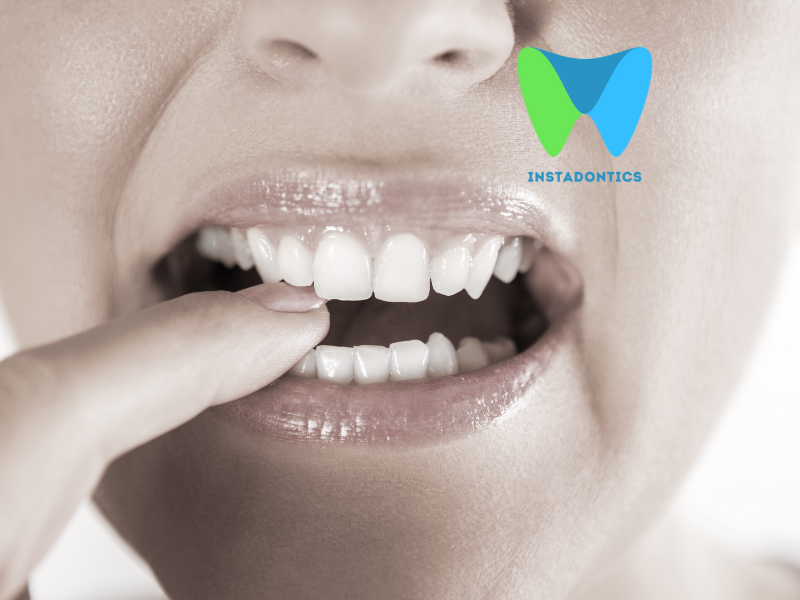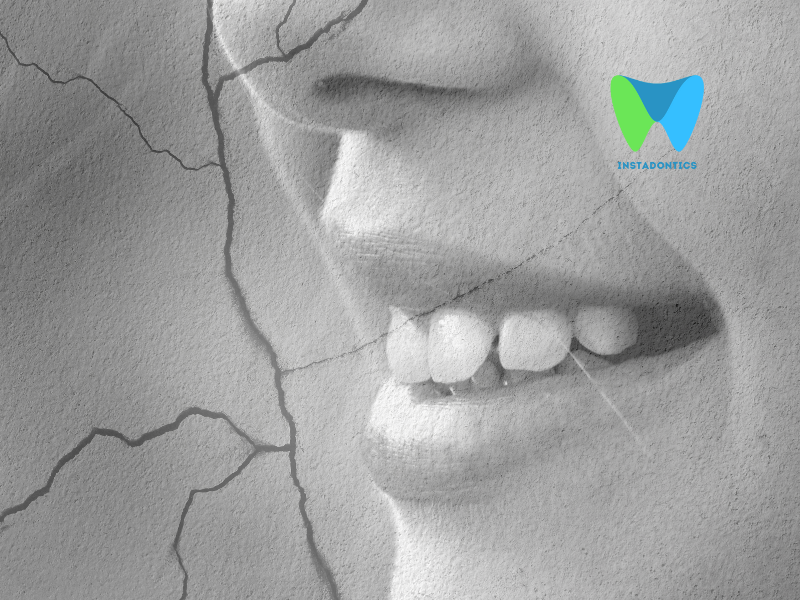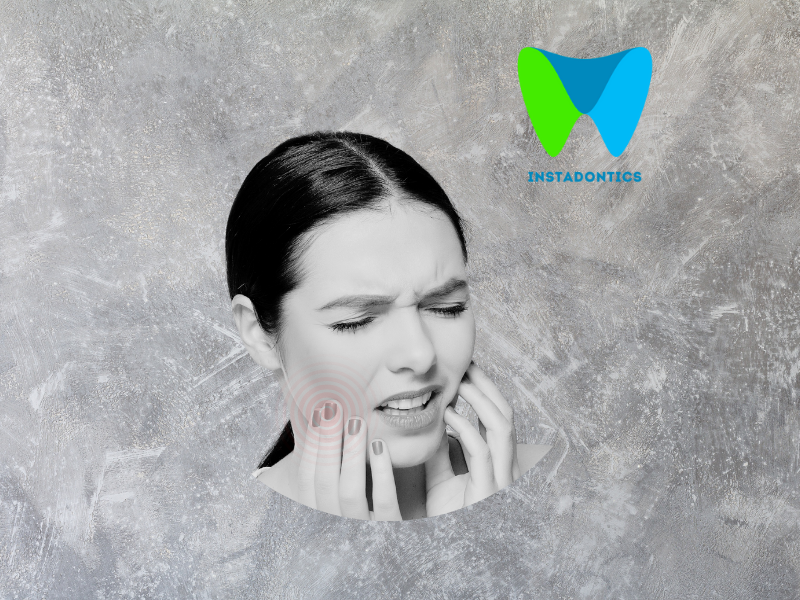Can Tooth Pain Cause Ear Pain| Tooth pain and ear pain are two common complaints that can significantly impact your quality of life. What many people don’t realize is that these two types of pain are often interconnected. If you’ve ever experienced a toothache that seems to radiate to your ear, or an earache that feels like it’s coming from your teeth, you’re not alone. This phenomenon is due to the complex network of nerves and structures in the head and neck. In this blog, we’ll explore the medical reasons behind this connection, the conditions that can cause both tooth and ear pain, and what you can do to find relief.
The Anatomy Behind the Connection
To understand how tooth pain can cause ear pain, it’s important to look at the anatomy of the head and neck. Several key structures and nerves link the teeth, jaw, and ears:
1. The Trigeminal Nerve
The trigeminal nerve is the largest cranial nerve and is responsible for sensation in the face, including the teeth, gums, and jaw. It has three branches:
- Ophthalmic Branch: Sensation in the forehead and eyes.
- Maxillary Branch: Sensation in the upper teeth, cheeks, and nasal cavity.
- Mandibular Branch: Sensation in the lower teeth, jaw, and part of the ear.
Because the trigeminal nerve supplies sensation to both the teeth and the ears, pain in one area can often be felt in the other. This is known as referred pain.
2. Temporomandibular Joint (TMJ)
The temporomandibular joint (TMJ) connects your jawbone to your skull and is located just in front of your ears. Problems with the TMJ, such as inflammation or misalignment, can cause pain that radiates to both the jaw and the ears.
3. Sinuses
The maxillary sinuses are located just above the upper teeth. When these sinuses become inflamed or infected (a condition known as sinusitis), the pressure can cause pain in both the upper teeth and the ears.
Conditions That Can Cause Both Tooth and Ear Pain
Several dental and medical conditions can cause pain in both the teeth and ears. Here are the most common ones:
1. Dental Infections and Abscesses
A dental abscess is a pocket of pus caused by a bacterial infection. It can occur at the root of a tooth or in the gums. The pain from an abscess can radiate to the ear due to the shared nerve pathways.
- Symptoms: Throbbing tooth pain, swelling, fever, and ear pain.
- Why It Happens: The infection irritates the trigeminal nerve, causing referred pain to the ear.
2. Impacted Wisdom Teeth
Impacted wisdom teeth are third molars that don’t have enough space to emerge properly. They can cause pain in the back of the mouth, which may radiate to the ear.
- Symptoms: Pain in the back of the jaw, swelling, difficulty opening the mouth, and ear pain.
- Why It Happens: The pressure from the impacted tooth affects the surrounding nerves, including those connected to the ear.
3. Temporomandibular Joint Disorder (TMD)
Temporomandibular joint disorder (TMD) refers to problems with the TMJ and the muscles that control jaw movement. TMD can cause pain in the jaw, teeth, and ears.
- Symptoms: Jaw pain, clicking or popping sounds when opening the mouth, headaches, and ear pain.
- Why It Happens: The TMJ is located close to the ear, so inflammation or misalignment can cause referred pain.
4. Sinus Infections
A sinus infection (sinusitis) can cause pressure and pain in the upper teeth and ears, especially if the maxillary sinuses are affected.
- Symptoms: Facial pain, congestion, toothache, and ear pain.
- Why It Happens: The sinuses are located close to the roots of the upper teeth and the ears, so inflammation can cause pain in both areas.
5. Bruxism (Teeth Grinding)
Bruxism is the habit of grinding or clenching your teeth, often during sleep. This can cause pain in the teeth, jaw, and ears.
- Symptoms: Tooth sensitivity, jaw pain, headaches, and ear pain.
- Why It Happens: The constant pressure on the teeth and jaw can irritate the TMJ and surrounding nerves, leading to referred pain in the ears.
6. Ear Infections
While ear infections primarily cause ear pain, the discomfort can sometimes radiate to the teeth and jaw, especially in children.
- Symptoms: Ear pain, fever, difficulty hearing, and toothache.
- Why It Happens: The nerves in the ear and jaw are closely connected, so pain in one area can be felt in the other.
How to Tell the Difference Between Tooth Pain and Ear Pain
Tooth pain and ear pain can sometimes feel very similar, making it difficult to identify the source of the discomfort. Here are some ways to distinguish between the two:
Ear Pain
- Typically felt deep inside the ear or around the ear area.
- May be accompanied by symptoms such as:
- Hearing changes: Hearing loss or ringing in the ears (tinnitus).
- Fluid drainage: A sign of an ear infection or other ear-related issues.
- Often worsens by:
- Lying down or during altitude changes (e.g., flying or driving up a mountain).
Ear Pain Caused by a Tooth
- May originate from conditions like:
- Impacted wisdom teeth or tooth abscesses that radiate pain to the ear.
- Temporomandibular joint (TMJ) disorders, which cause pain near the jaw and ear.
- Pain often worsens when:
- Chewing or biting on the affected side.
- The tooth is exposed to hot, cold, or pressure changes.
Tooth Pain
- Usually localized to one tooth or a specific area of the mouth.
- Commonly accompanied by:
- Swelling, redness, or tenderness in the surrounding gums.
- Increased sensitivity to hot or cold foods or when biting down.
What to Do If You’re Unsure
If the pain is persistent and you’re unable to determine the cause, consult both a dentist and a healthcare provider. They can assess your symptoms and recommend the appropriate treatment.
How to relieve the pain
1. Over-the-Counter Pain Relievers
Over-the-counter (OTC) pain relievers are often the first line of defense against tooth and ear pain. They can help reduce pain and inflammation, making it easier to function throughout the day.
Ibuprofen (Advil, Motrin)
- How It Works: Ibuprofen is a nonsteroidal anti-inflammatory drug (NSAID) that reduces pain and inflammation by inhibiting the production of prostaglandins, which are chemicals that cause pain and swelling.
- Dosage: The typical dosage for adults is 400-600 mg every 6 hours as needed. Do not exceed 3200 mg in 24 hours.
- Benefits: Effective for both tooth and ear pain, especially when inflammation is present.
- Side Effects: May cause stomach irritation, so take it with food. Avoid if you have a history of stomach ulcers or kidney problems.
Acetaminophen (Tylenol)
- How It Works: Acetaminophen works by blocking pain signals in the brain. Unlike ibuprofen, it does not reduce inflammation.
- Dosage: The typical dosage for adults is 500-1000 mg every 4-6 hours as needed. Do not exceed 4000 mg in 24 hours.
- Benefits: Gentle on the stomach and safe for most people, including those who cannot take NSAIDs.
- Side Effects: Overuse can cause liver damage, so avoid alcohol while taking acetaminophen.
Combining Ibuprofen and Acetaminophen
- For severe pain, some healthcare providers recommend alternating between ibuprofen and acetaminophen. For example, take ibuprofen, then 3 hours later take acetaminophen, and repeat as needed. This approach can provide more consistent pain relief.
2. Warm Compress
A warm compress can help relieve pain and inflammation by increasing blood flow to the affected area and relaxing tense muscles.
How to Use a Warm Compress
- Soak a clean washcloth in warm water (not too hot to avoid burns).
- Wring out the excess water and place the cloth on the affected side of your face.
- Leave it on for 15-20 minutes, then remove it.
- Repeat 2-3 times a day or as needed.
Benefits
- Reduces swelling and inflammation.
- Soothes muscle tension in the jaw and around the ear.
- Promotes relaxation and comfort.
3. Saltwater Rinse
A saltwater rinse is a simple yet effective way to reduce bacteria, soothe irritation, and promote healing in the mouth.
How to Make and Use a Saltwater Rinse
- Mix 1 teaspoon of salt in a glass of warm water until the salt dissolves.
- Take a sip of the solution and swish it around your mouth for 30 seconds, focusing on the affected area.
- Spit out the solution (do not swallow).
- Repeat 2-3 times a day, especially after meals.
Benefits
- Reduces bacteria and prevents infection.
- Soothes irritated gums and tissues.
- Helps remove food particles and debris from the mouth.
4. Avoid Trigger Foods
Certain foods can aggravate tooth and ear pain, especially if the pain is caused by sensitivity, inflammation, or TMJ issues. Avoiding these foods can help minimize discomfort.
Foods to Avoid
- Hard or Crunchy Foods: Nuts, chips, and hard candies can put pressure on sensitive teeth and the jaw.
- Hot or Cold Foods: Ice cream, hot coffee, and cold drinks can trigger sensitivity.
- Sugary Foods: Candy, soda, and desserts can promote bacterial growth and worsen tooth decay.
- Chewy or Sticky Foods: Caramel, gum, and taffy can pull on dental work or irritate the jaw.
Recommended Foods
- Soft Foods: Mashed potatoes, yogurt, oatmeal, and scrambled eggs are gentle on the teeth and jaw.
- Lukewarm Foods: Soups and teas that are not too hot or cold can be soothing.
- Hydrating Foods: Water-rich fruits and vegetables like watermelon and cucumber can help keep you hydrated.
5. Use a Night Guard
If you grind your teeth at night (a condition known as bruxism), a night guard can help protect your teeth and reduce pressure on the temporomandibular joint (TMJ), which can alleviate both tooth and ear pain.
How a Night Guard Works
- A night guard is a custom-fitted or over-the-counter device that you wear while sleeping.
- It creates a barrier between your upper and lower teeth, preventing them from grinding against each other.
- This reduces strain on the jaw muscles and TMJ, which can help relieve pain.
Types of Night Guards
- Custom-Fitted: Made by your dentist, these are the most effective but also the most expensive.
- Boil-and-Bite: Available at pharmacies, these can be softened in hot water and molded to your teeth.
- Pre-Made: The least expensive option, but may not fit as comfortably.
Benefits
- Protects teeth from wear and tear.
- Reduces jaw tension and TMJ pain.
- Can prevent ear pain caused by bruxism.
6. Stay Hydrated
Staying hydrated is essential for overall health and can help alleviate tooth and ear pain, especially if the pain is related to sinus issues or dry mouth.
How Hydration Helps
- Thins Mucus: Drinking plenty of water helps thin mucus, reducing sinus pressure and congestion that can cause ear and tooth pain.
- Promotes Saliva Production: Saliva helps protect your teeth from decay and keeps your mouth moist, reducing discomfort.
- Flushes Toxins: Water helps flush out bacteria and toxins that can contribute to infections.
Tips for Staying Hydrated
- Drink at least 8 glasses of water a day.
- Avoid sugary or caffeinated beverages, which can dehydrate you.
- Use a humidifier at night to keep your nasal passages and throat moist.
Additional Tips for Relieving Tooth and Ear Pain
Here are a few more strategies to help you manage your symptoms:
1. Elevate Your Head While Sleeping
- Propping your head up with an extra pillow can reduce sinus pressure and prevent fluid from pooling in your ears, which can help alleviate ear pain.
2. Practice Stress Management
- Stress can exacerbate teeth grinding and TMJ issues. Try relaxation techniques like deep breathing, meditation, or yoga to reduce tension.
3. Use Over-the-Counter Decongestants
- If your pain is related to sinus congestion, a decongestant can help reduce pressure and improve drainage.
4. Avoid Smoking and Alcohol
- Smoking and alcohol can irritate the tissues in your mouth and throat, worsening pain and delaying healing.
5. Apply Clove Oil
- Clove oil has natural analgesic and antibacterial properties. Apply a small amount to a cotton ball and place it on the affected tooth for temporary relief.
When to Seek Professional Help
While mild tooth or ear pain may resolve on its own, certain symptoms warrant a visit to the doctor or dentist:
- Severe or persistent pain that doesn’t improve with over-the-counter painkillers.
- The pain persists for more than a few days.
- You experience severe swelling, fever, or other signs of infection.
- You have difficulty opening your mouth or swallowing.
- The pain interferes with your daily activities or sleep.
- Swelling in the face, jaw, or around the ear.
- Fever, chills, or other signs of infection.
- Difficulty opening your mouth or swallowing.
- Hearing loss or discharge from the ear.
Medical Treatments for Tooth and Ear Pain
If home remedies don’t provide relief, your doctor or dentist may recommend the following treatments:
1. Antibiotics
- If the pain is caused by an infection, such as a dental abscess or sinusitis, antibiotics may be prescribed.
2. Dental Procedures
- For tooth-related issues, treatments may include fillings, root canals, or extractions.
3. TMJ Therapy
- If TMD is the cause, treatments may include physical therapy, splints, or surgery in severe cases.
4. Ear Drops
- For ear infections, medicated ear drops may be prescribed to reduce pain and inflammation.
Preventing Tooth and Ear Pain
Here are some tips to prevent tooth and ear pain:
- Practice Good Oral Hygiene: Brush twice a day, floss daily, and visit your dentist regularly.
- Treat Sinus Infections Promptly: Use decongestants or saline sprays to relieve sinus pressure.
- Avoid Teeth Grinding: Wear a night guard if you grind your teeth.
- Protect Your Ears: Avoid inserting objects into your ears and treat ear infections promptly.
- Stay Hydrated: Drinking water helps keep your sinuses and mouth healthy.
FAQs
1. Can a toothache cause ear pain?
Yes, a toothache can cause ear pain. Dental issues such as cavities, abscessed teeth, or impacted wisdom teeth can lead to referred pain in the ear. This occurs because the nerves in the teeth and jaw are closely connected to those in the ear, allowing pain to radiate between these areas.
2. How can I tell if my ear pain is due to a dental problem?
If your ear pain is accompanied by tooth sensitivity, gum swelling, or pain when chewing, it may be related to a dental issue. Conditions like temporomandibular joint (TMJ) disorders can also cause pain near the jaw and ear. It’s important to consult both a dentist and a healthcare provider to determine the exact cause.
3. Can an ear infection cause tooth pain?
Yes, an ear infection can cause referred pain to the teeth and jaw due to the interconnected nerve pathways. Symptoms like hearing loss, ringing in the ears (tinnitus), or fluid drainage may accompany the pain. If you experience these symptoms along with tooth pain, it’s advisable to consult a healthcare provider.
4. What dental problems are commonly associated with ear pain?
Dental issues that can cause ear pain include:
- Tooth abscesses: Infections that can spread pain to the jaw and ear.
- Impacted wisdom teeth: Can cause discomfort radiating to the ear.
- Temporomandibular joint (TMJ) disorders: Lead to pain near the jaw and ear.
5. How is ear pain caused by dental issues treated?
Treatment depends on the underlying dental problem. For instance:
- Tooth abscess: May require root canal therapy to remove infected tissue.
- Impacted wisdom teeth: Often treated with extraction.
- TMJ disorders: Managed with therapies like bite adjustments or stress reduction techniques.
Consulting a dentist is crucial for an accurate diagnosis and appropriate treatment plan.
6. When should I see a dentist or doctor for ear and tooth pain?
If you experience persistent ear and tooth pain, especially when accompanied by symptoms like swelling, fever, or difficulty opening your mouth, it’s important to seek professional medical advice. Early diagnosis and treatment can prevent complications and alleviate discomfort.
Tooth pain and ear pain are more connected than you might think, thanks to the intricate network of nerves and structures in the head and neck. Whether the pain is caused by a dental infection, sinusitis, TMJ disorder, or another condition, understanding the underlying cause is key to finding relief.
If you’re experiencing tooth and ear pain, don’t ignore it. While home remedies can provide temporary relief, it’s important to consult a healthcare professional for a proper diagnosis and treatment plan. By addressing the root cause of the pain, you can protect your oral and overall health and enjoy a pain-free life.



